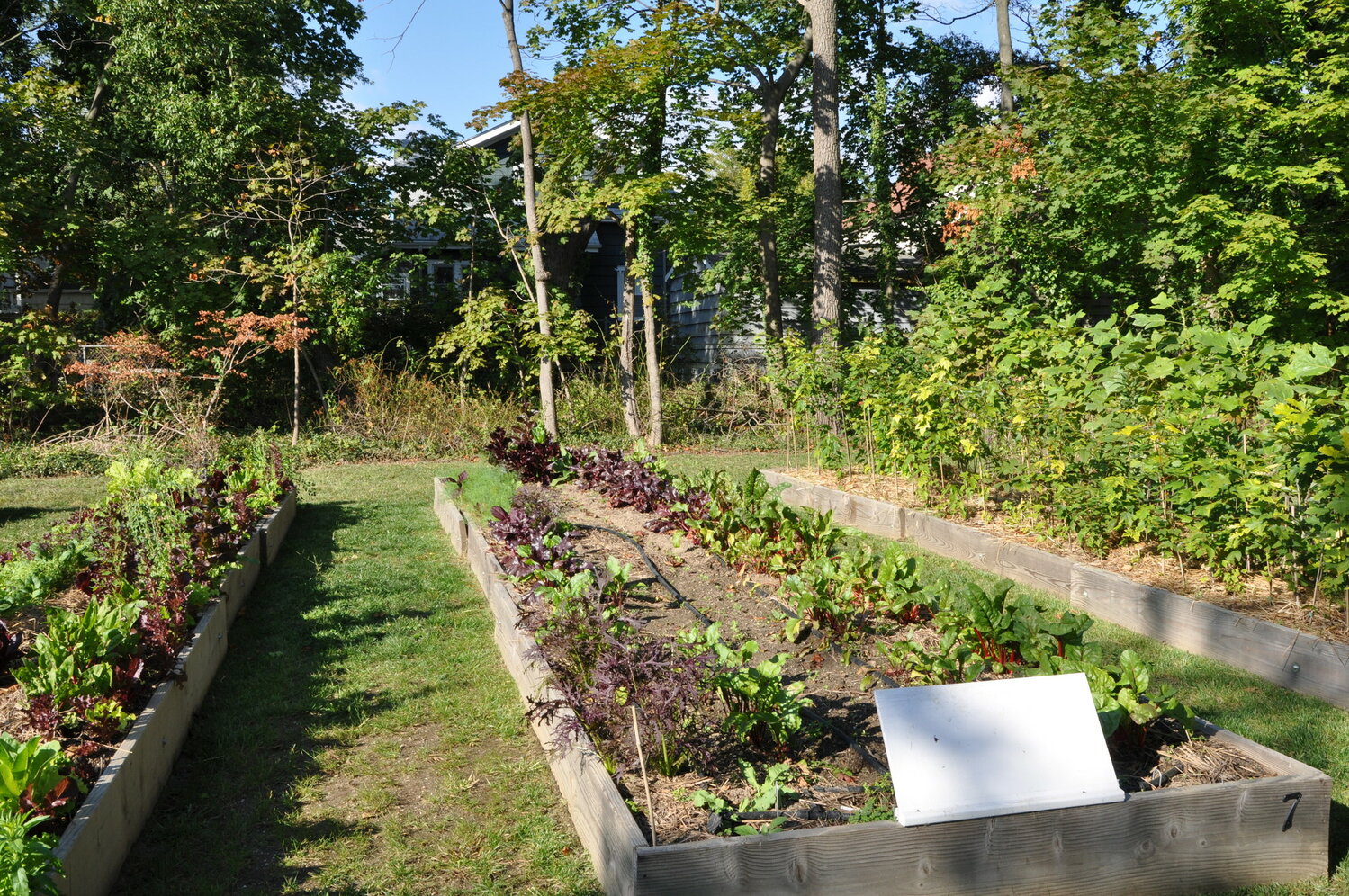Community garden plans to grow fresh produce for neighbors by neighbors
Against the backdrop of concrete-paved streets often devoid of nature and clogged with traffic, residents, village officials, and environmental experts are planning to bring more green to the village by transforming an unused field into a thriving pocket of lush vegetation.
The mostly empty plot of land, which sits near East Hawthorne Avenue, between Newbold Avenue and Horton Avenue, is being repurposed into the village’s first community garden.
The garden is slated to become a fenced growing area to raise organically-sourced vegetables by and for its gardening members, noted Irene Crovets-Prager, a leading volunteer in the project.
Because there are only so many soil plots, membership slots are limited. Gardeners are expected to be picked at random through a lottery system from its eligible pool of adult-age Valley Stream residents. Disadvantaged groups will be considered as some slots are reserved for individuals with disabilities in compliance with the Americans with Disabilities Act.
“We are now in the groundbreaking and planter building phase,” said Crovets-Prager. “We’ll welcome members in phases as we build the garden and at optimum, we’ll have over 40 spots.”
The Takeaway
- Valley Stream plans to convert an unused field into its first community garden near East Hawthorne Avenue, fostering green spaces in the urban landscape.
- The project involves a lottery system for limited membership slots, with the first phase set to have 28 plots. Initial plans target over 40 spots, with a lottery scheduled for January 2024.
- Assemblywoman Michaelle Solages secured seed money, ensuring initial funding. Collaborations with Cornell Cooperative Extension, master gardeners, and a bylaws committee demonstrate comprehensive planning and professional guidance.
Generated through Open-AI
David Sabatino, deputy village treasurer for planning and economic development estimates 28 plots in the first phase with the lottery for spaces set for January 2024.
While the project has been catapulted into reality thanks to seed money secured by Assemblywoman Michaelle Solages, a longtime advocate of the project, to be truly self-sustaining, there are still year-round expenses to cover.
“We’re providing each gardener with a raised plot of rich soil, water will be available, and it will be locked and secured for them,” said Crovets-Prager. “Plants are not included. That they’ll have to bring themselves.”
A “pay structure” in the form of an annual membership fee has yet to be finalized for those who want to become a member, noted Crovets-Prager. Just like with access to the village pool, Crovets-Prager anticipates rates may differ slightly depending on whether someone has village residency.
All aspects of the project are being carefully planned and professionally executed in partnership with the Cornell Cooperative Extension, according to officials. There will also be a bylaws committee on gardening and most likely master gardeners lending their green thumbs to help see out the garden’s maturity.
Crovets-Prager is a veteran gardener and compost-lover who has participated in or led community garden initiatives before. “I’ve learned a lot of lessons about what it takes to grow and maintain a community garden and to bring that knowledge to my community is great,” she said.
To that effect, there are mandatory guidelines that gardeners are expected to follow including that whatever organic edibles sprouted from the garden will not be available for sale, noted Crovets-Prager. The local growing operations are strictly for members and what they grow is for “home use only.”
This policy is in sharp contrast to other communities where the spontaneous joys of gardening and the fruits of members’ labor are shared more liberally. In some community gardens across New York City, given concerns over access to fresh foods for low-income residents, growers can provide and distribute their weekly harvests to the community with reduced rates for lower-income families.
Non-members, nevertheless, won’t be left out of the program’s benefits in other ways.
“We’re looking to offer educational seminars on gardening and workshops on nutrition awareness to the community free of charge,” Crovets-Prager said. “Plus, we need volunteers to provide around-the-edge assistance with basic maintenance. This might fit the bill for Honor Society students, for example, that require a certain amount of volunteer hours.”
The project has been a long time in the making.
First proposed by Solages in 2018 and initially conceived as a shared green space for Elmont and Valley Stream residents in 2020, the Assemblywoman elicited feedback from a resident coalition over potential location ideas. At that time, the leading candidate wasn’t an empty field but a deserted home at the intersection of North Central Avenue and North Drive. Plans, however, did not solidify.
“While we’ve had so many people excited to participate, just getting a location has been the challenge,” said Solages. “The village stepped up and provided a beautiful plot of land where we can grow food and foster friendship and fellowship with members of our community.”
While garden planners are hoping to make food and farming available for a committed few, some residents envisioned a community garden with perhaps far less rigid ground rules and a hodgepodge of public uses.
Some of the initial ideas tossed around included garden wine and kids’ party fundraisers, planting apple trees and then hosting an apple tree-picking fall festival, and school district field trips to the garden for children to plant flowers in pots to bring home.
But maybe those ideas are too far in the future for the time being.
The main focus as it stands for Crovets-Prager and others is helping interested residents reconnect to the soil in Valley Stream while building camaraderie around growing things and “getting your hands dirty” under the sun.
“Gardening is a very calming and quiet time for me, which I always need. It’s my secret spot,” said Crovets-Prager. “It’s a way to bring people of all ages together and to share the joy of creation and building something you can take pride in.”
Have an opinion on this article? Send an email to jlasso@liherald.com.






